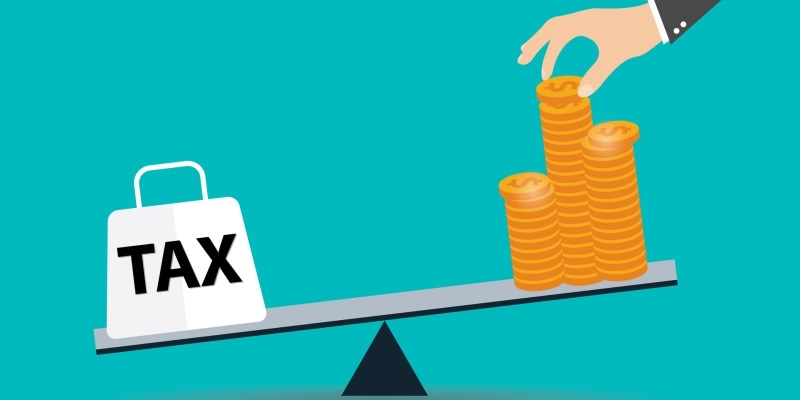
Fortunately for the Canadian taxpayer, most individual income tax returns filed result in the payment of a tax refund to the tax filer. Notwithstanding, a significant number of taxpayers find, on completing the annual tax return, that money is owed to the Canada Revenue Agency. Of the returns for the 2022 tax year that were filed between mid-February and mid-March this year, over half a million taxpayers found themselves in that position. It’s likely, as well, that those who owe money on filing aren’t eager to file early, and so the number of taxpayers who must pay a tax balance for 2022 will almost certainly increase significantly between now and the payment deadline of May 1, 2023.
While receiving a refund is the best possible outcome, the worst-case scenario for all taxpayers is to find out that they are faced with a large tax bill and an imminent payment deadline, and that they just don’t have the money to make the required payment by that deadline. Right now, many Canadians are already living with significant financial constraints, as they cope with both inflationary increases in the cost of household goods (especially groceries) and the impact of eight successive increases in interest rates since this time last year.
For the many Canadians who don’t have the means to pay a tax bill out of existing resources, that can mean borrowing the needed funds. And, while that will mean paying interest on the borrowing, the interest cost incurred will likely be less than that which would be levied by the Canada Revenue Agency on the unpaid tax bill.
Where, however, a tax bill can’t be paid in full out of either current resources or available credit, the Canada Revenue Agency is open to making a payment arrangement with the taxpayer. While, like most creditors, the CRA would rather get paid on time and in full, its ultimate goal is to collect the full amount of taxes owed. Consequently, the Agency provides taxpayers who simply can’t pay their bill for the year on time and in full with the option of paying an amount owed over time, through a payment arrangement.
There are two avenues available to taxpayers who want to propose a payment arrangement with the CRA. The first is a call to the Agency’s automated TeleArrangement service at 1-866-256-1147. When making such a call, it is necessary for the taxpayer to provide his or her social insurance number, date of birth, and the amount entered on line 15000 of the last tax return for which the taxpayer received a Notice of Assessment. For taxpayers who are up to date on their tax filings, that will be the Notice of Assessment for the return for the 2021 tax year. The TeleArrangement Service is available Monday to Friday, from 7 a.m. to 10 p.m., Eastern time.
Taxpayers who would rather speak directly to a CRA employee can call the Agency’s debt management call centre at 1-888-863-8657 or can complete an online form (available at https://apps.cra-arc.gc.ca/ebci/iesl/showClickToTalkForm.action) requesting a callback from a CRA agent.
No matter what payment arrangement is made, the CRA will levy interest charges on any amount of tax owed for the 2022 tax year which is not paid on or before May 1, 2023. Interest charges levied by the CRA tend to add up quickly, for two reasons. First, the interest rate charged by the CRA on outstanding tax amounts is, by law, higher than current commercial rates – the rate which will be charged from April 1 to June 30, 2023 is 9.0%. Second, interest charges levied by the CRA are compounded daily, meaning that each day interest is levied on the previous day’s interest charges. It is for these reasons that a taxpayer is, where at all possible, likely better off arranging private borrowing in order to pay any taxes owing by the May 1 deadline.
Finally, regardless of the taxpayer’s financial circumstances, there is one strategy which is always ill-advised. Taxpayers who can’t pay their tax bill by the deadline sometimes conclude that there is no point in filing if payment can’t be made. Those taxpayers are wrong. Where an amount of tax is owed and the return isn’t filed on time, there is an immediate tax penalty imposed of 5% of the outstanding tax amount – and interest charges start accruing on that penalty amount (as well as on the outstanding tax balance) immediately. For each full month that the return isn’t filed, a further penalty of 1% of the outstanding tax amount is charged, to a maximum of 12 months. Higher penalty amounts are charged, for a longer period, where the taxpayer has incurred a late-filing penalty within the past three years. In all cases, no matter what the circumstances, the right answer is to file one’s tax return on time. This year, for most taxpayers, that means filing on or before Monday May 1, 2023. For self-employed taxpayers (and their spouses) the filing deadline is Thursday June 15, 2023. However, for all taxpayers, the payment deadline for all 2022 income tax amounts owed is Monday May 1, 2023.
Detailed information on the options available to taxpayers who can’t pay their taxes on time and in full can be found on the CRA website at https://www.canada.ca/en/revenue-agency/services/payments-cra/individual-payments.html.
The information presented is only of a general nature, may omit many details and special rules, is current only as of its published date, and accordingly cannot be regarded as legal or tax advice. Please contact our office for more information on this subject and how it pertains to your specific tax or financial situation.
